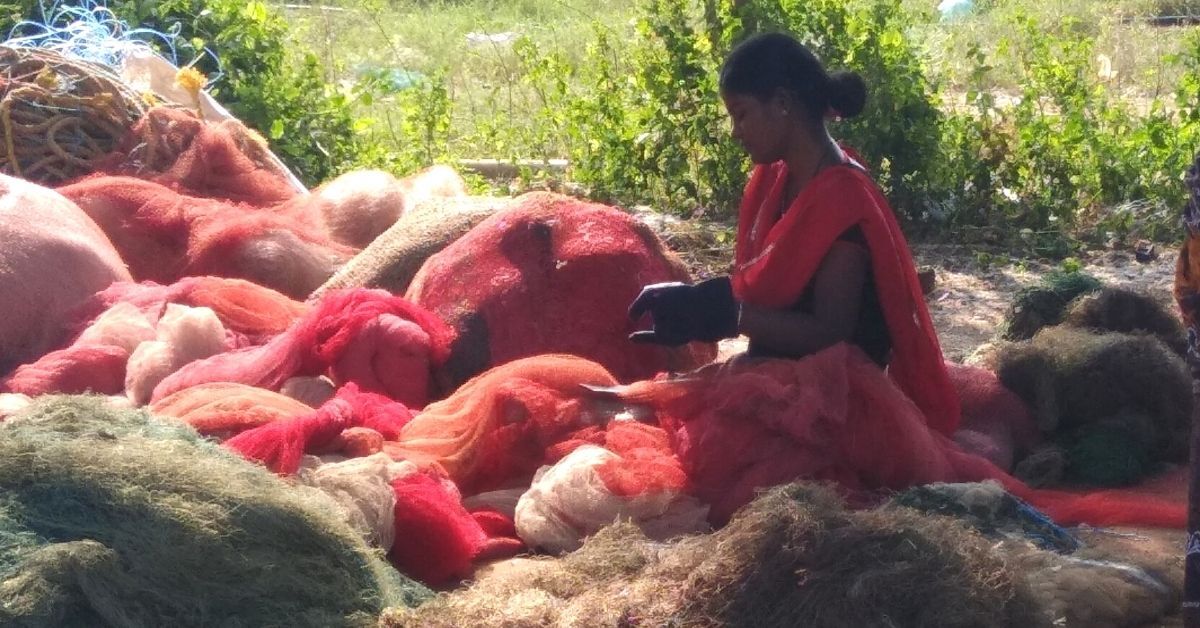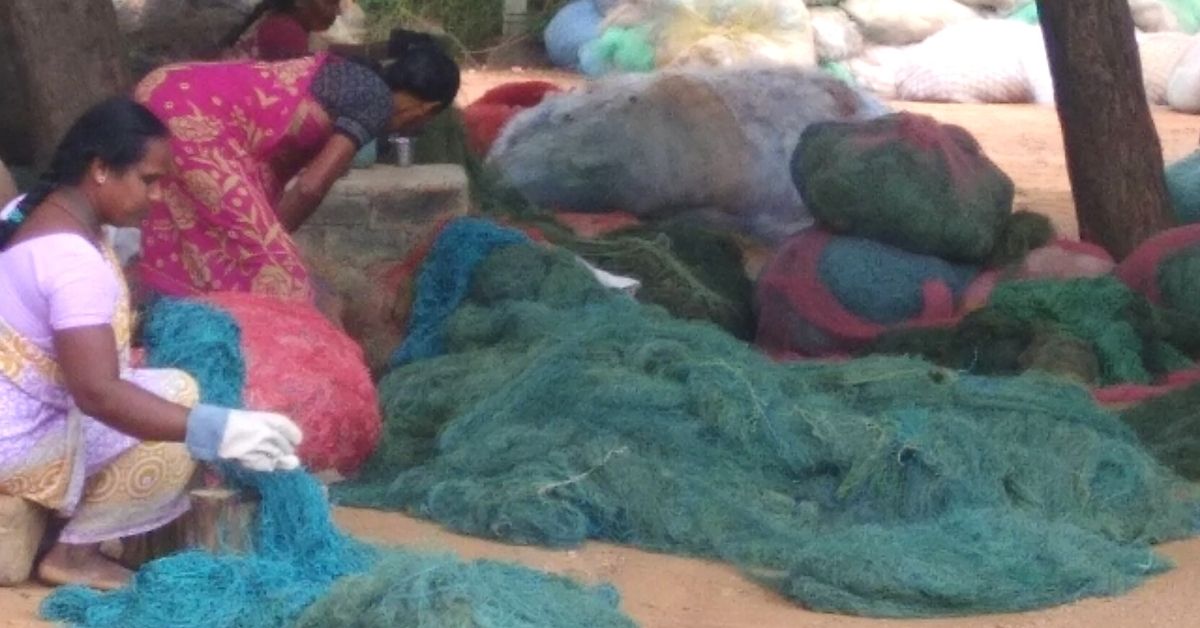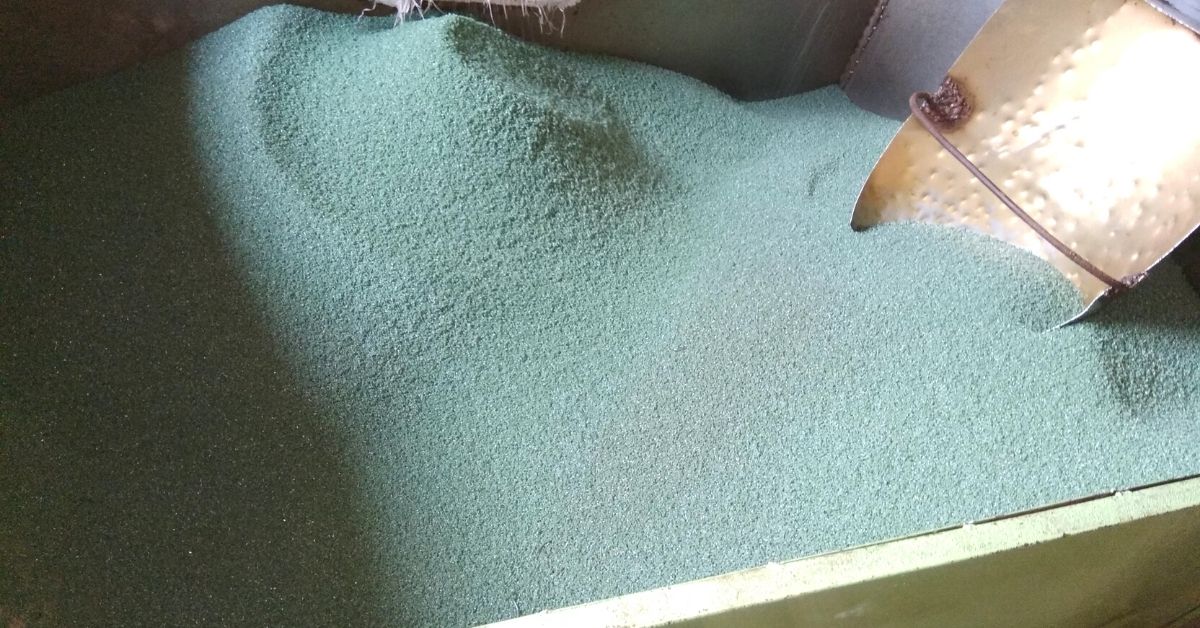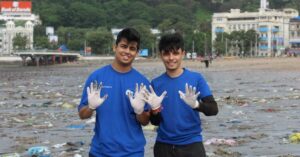At a Pune Factory, 6,000 Tonnes of ‘Ghost Nets’ Are Being Turned Into Surfing Boards
Through its innovative technology, Pune-based DSM Engineering Materials recycles 2,000 tonnes of abandoned fishing nets every year, and turns them into world-class surfboards

I recently watched a Netflix documentary Seaspiracy, which emphasised the much-ignored problem of plastic waste caused due to fishing nets. It was terrifying to learn that the great Pacific garbage patch alone consists of 86 per cent fishing nets of its overall plastic pollution.
Over 6,40,000 tonnes of fishing gear like nets, traps, pots and lines are dumped into the ocean every year. Their weight is equivalent to over 1,00,000 buses which adds to the pollution mainly consisting of plastic.
‘Ghost nets’ or ‘ghost gears’ are discarded and abandoned fishing nets that often entangle marine life, and kill them by accidental entrapment and choking.
To solve the massive environmental issue that affects marine life globally, a Pune- based company DSM Engineering Materials—that works in the field of nutrition, health, biosciences and sustainable living—is converting the discarded fishing nets into high-quality surfboards.
“The company entered an agreement with Starboard—a global leading waterspouts company that sells surf, windsurf, paddle and kiteboards—to assist in the effort,” says Dr Nileshkumar Kukalyekar, Product Manager Asia Pacific at DSM Engineering Materials.
He says that the 120-year old company always strives to bring solutions that help better the environment. “The company wanted to contribute meaningfully in terms of solving the global plastic pollution problem,” he adds.
Dr Nilesh says the abandoned fishing nets heavily impact the fishermen community living along the shores. “These ghost nets often get entangled in motors or rudders of the fishing boat. It also hampers the local flora and fauna, which impacts the biodiversity and fish population. The reduction in fish directly impacts the fishermen community’s livelihood,” he explains.
Addressing the problem, the company has recycled about 6,000 tonnes of nets into surfboards.
Dr Nilesh says that the fishing fraternity is roped in to trace and collect discarded fishing nets from the Arabian Sea and the Indian Ocean.
Sharing the process, Dr Nilesh says, “The abandoned fishing nets are collected by fishermen locally. As the Indian coastline is vast, it is practically unfeasible to reach out to all the areas. Hence, we have tied up with local partners who collect these nets and transport them to the plant in Pune. The nets are then cleaned of all the dirt, seashells and other unwanted materials preparing them for a new lease of life.”
He says the nets are mixed with additives and undergo a process developed by the company. “The fishing nets are converted into granules and processed to turn them into fibreglass surfboards, which find a market across the globe. The primary material, granules, can be practically used to make furniture or other useful items as well,” Dr Nilesh says.

He adds that about 2,000 tonnes of such ghost nets are processed each year.
Dr Nilesh says that the product is high quality despite being made from a discarded and worn out material. “It is crucial to ensure performance and quality from the new product made from degraded material. The technology adopted by the company helps to change the properties of the deteriorated nets and enhance their quality into better raw materials. Developing technology for the same was a challenging task, but the experts have succeeded in achieving this over time,” he says.
Besides, he says that procuring fishing nets remains a never-ending challenge. “It is important to have like-minded people on ground and put dedicated efforts for the larger good. The fishermen do not earn from collecting the ocean waste, and it has to be a conscious effort to do the task,” he shares.
Dr Nilesh says the company plans to bring more sustainable solutions in the future to reduce the impact of CO2 emissions.
“We are glad that our initiative results in litter-free beaches and creates a safe and healthier marine environment with the help of local communities,” he adds.
Edited by Yoshita Rao
This story made me
- 97
- 121
- 89
- 167
Tell Us More
We bring stories straight from the heart of India, to inspire millions and create a wave of impact. Our positive movement is growing bigger everyday, and we would love for you to join it.
Please contribute whatever you can, every little penny helps our team in bringing you more stories that support dreams and spread hope.



















